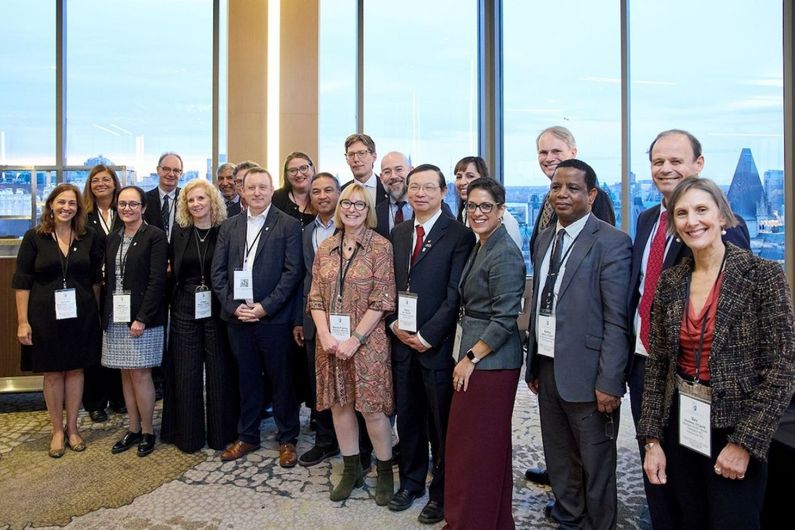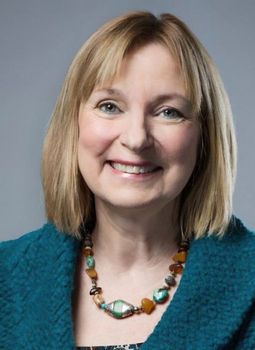Science serving the people
- UdeMNouvelles
11/14/2023
- Catherine Couturier
Newly appointed Canadian Academy of Health Sciences president Marie-France Raynault wants to raise awareness of the organization and its advisory role.
“Canada’s learned societies are very well known in English Canada but much less so in Quebec: there really are two solitudes,” says Marie-France Raynault, professor emeritus in Université de Montréal's Department of Social and Preventive Medicine.
But while Quebecers once had little interest in learned societies, she believes things have changed. She became a fellow of the Canadian Academy of Health Sciences (CAHS) in 2007, joined its board of directors in 2019, and has now been named its president.
Raising the profile of the CAHS is one of her goals in her new role.
Breaking out of the ivory tower
For a long time, Canada’s three learned societies - the Royal Society of Canada, the Canadian Academy of Engineering and the Canadian Institute of Academic Medicine (CIAM, since renamed CAHS) - were honorific organizations. But their role shifted in the early 2000s.
“The Canadian government wanted them to serve the public and provide science-based assessments to help Canadian policymakers,” Raynault recalls. So in 2004, the CIAM became the CAHS.
“It went from being a purely honourary body, composed mainly of medical researchers, to an academy with a wide range of professionals,” Raynault explains. Nurses, veterinarians, dentists and ethicists, among others, now have a voice in the Academy, which also recognizes the contribution of the social sciences to health and the expertise of senior healthcare administrators.
The Academy produces evidence-based analyses and presents them to government and decision-making bodies to improve the health of Canadians. “We don’t make recommendations but we do identify possible solutions,” Raynault explains.
In the past, the Academy decided what issues it would address, but Raynault said it has found that the impact of its assessments is greater “when there is a public appetite for them.” As a result, needs are now discussed with various agencies and a wide range of topics are addressed, including autism, dementia, fetal alcohol syndrome and challenges in the health workforce. In addition to reviewing the scientific literature, the Academy’s fellows consult organizations and directly engage people affected by a given subject.
“It’s an interesting way to do science: we share and exchange knowledge, rather than working in a vacuum,” says Raynault. “When we have completed an assessment, we can say that we have examined the question from every angle and that we’ve run the possible solutions by the people who will have to implement them.”
Making an impact
The CAHS enables its members to have a real impact on public policy and decision-making.
“In our latest assessment, on Canada’s health workforce, we made recommendations on how to meet future staffing needs, and this was used by the Institutes of Health Research for a call for proposals,” Raynault said.
“We are not a lobby. Our fellows are people who have achieved something in their careers and want to volunteer to serve Canadians.”
The CAHS has set up a training program for its fellows to help increase their participation in parliamentary committees. Raynault believes that being an academic researcher comes with a responsibility to the Canadian public: “Society has legitimate expectations of us. It has invested in our academic careers and we can use our skills to give something back.”
A call to get involved
To raise the profile of the CAHS among Quebec researchers and gain recognition for the expertise of francophone researchers, Raynault hopes university faculties will identify candidates among their professors and support their applications.
“I myself didn’t know about the CAHS in 2007,” she recalls. “Jean-Lucien Rouleau, our dean of medicine at the time, urged me to apply and helped me put my application together.”
To become a member of the Academy, researchers must first be sponsored. The next nomination process will be launched online in January. It is an opportunity for researchers to increase their impact, Raynault says.
“Most health researchers aren’t content to just publish. Academic recognition is fine, but seeing your knowledge put to good use is the greatest reward. Researchers can’t always find a forum where they can do that. This is what the CAHS provides.”














